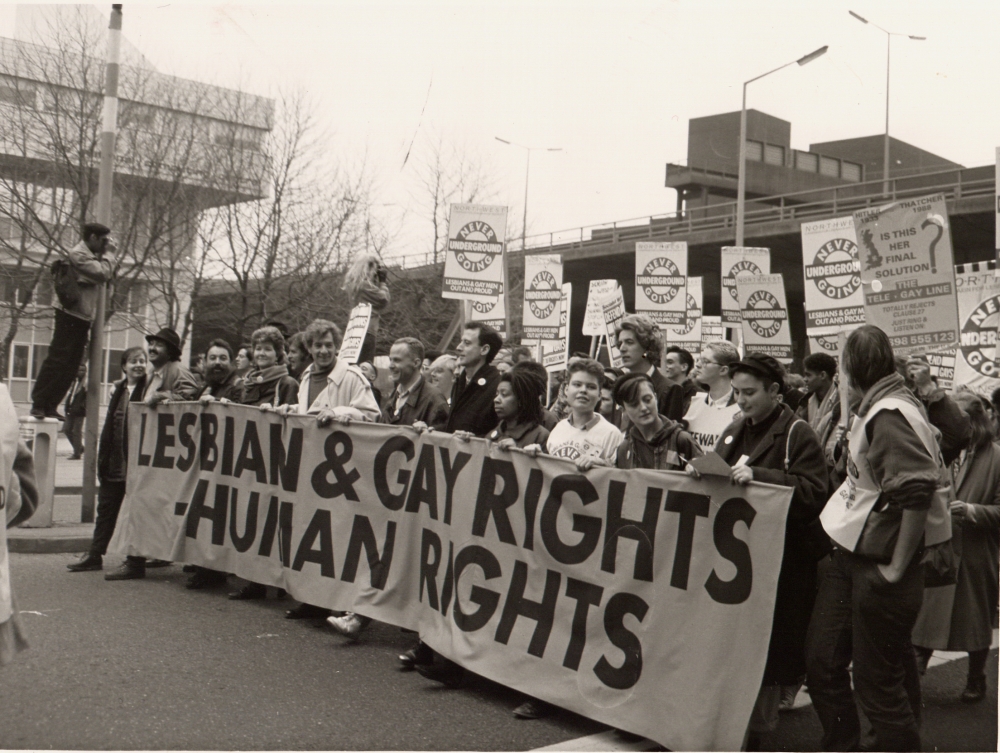
It’s been 20 years since the harmful Section 28 legislation was repealed on November 18th 2003. The United Kingdom has made significant progress in LGBTQ+ rights over the past two decades, but the recent rise in hate crimes reported against Lesbian, Gay, Bisexual and Transgender people shows that there is still work to be done for the safety of our communities.
In the late 80s, the HIV epidemic had been spiralling out of control, with many lives lost. The LGBTQ+ community across the country were loudly demanding equality from the government. Section 28 was the Conservative government’s response; Margaret Thatcher’s answer to those who believed “they have an inalienable right to be gay”.
Section 28 was a controversial law in effect from 1988 to 2000 in Scotland and from 1988 to 2003 in England and Wales. The legistation banned the promotion of homosexuality and positive portrayals of homosexuality in educational materials, meaning that teachers were not allowed to teach pupils about LGBTQ+ identities or same-sex relationships. It had a detrimental impact on LGBTQ+ people in educational and public settings, contributing to discrimination and the development of stigma. In practical terms it often meant that teachers were unable to intervene when a child was being bullied for their perceived LGBTQ+ identity for fear of being in trouble for promoting it. The repeal of Section 28 in 2003 marked a significant milestone in LGBTQ+ rights and education policies, but it was only the beginning of a long journey toward inclusivity.
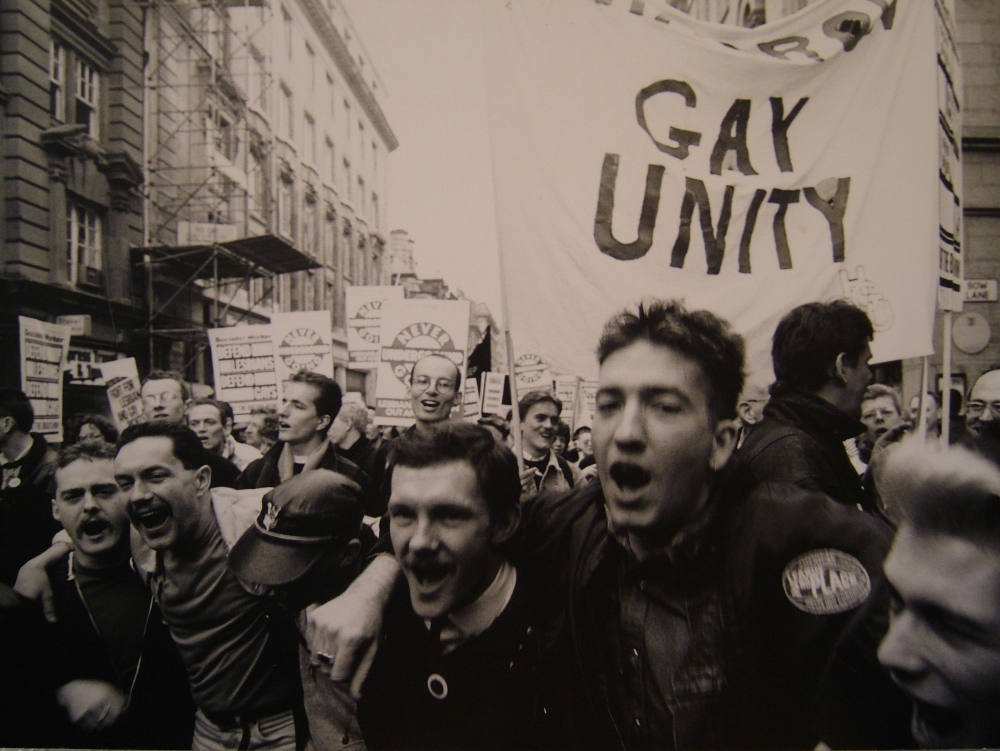
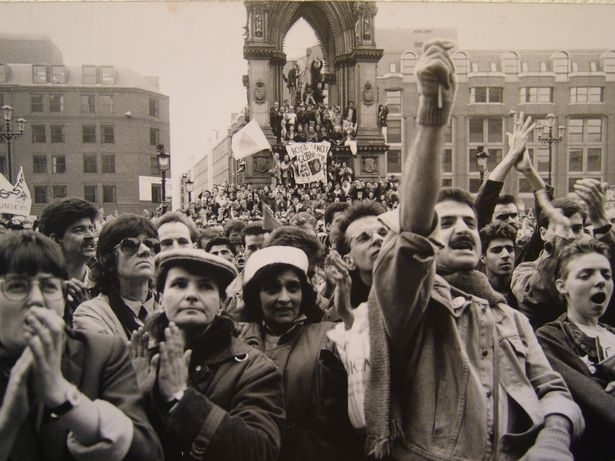
Paul Fairweather is a prominent activist who had been at the forefront of the gay liberation movement in the 80s. In response to the rising fatalities as a result of AIDS complications, the then Chief Constable of the Greater Manchester Police had said that gay men were “Swirling in a cesspit of their own making".
On 20th February 1988, a huge anti-Section 28 protest was held in Manchester, organised with Fairweather’s help. Over 20,000 people took to the streets to let their disquiet be heard.
“Like the battle against HIV, we resisted and fought back, the result was a new generation of LGBTQ+ activists.” - Paul Fairweather
At the time, it was one of the largest LGBTQ+ demonstrations ever to take place in the UK! This and many other protests around the globe paved the way for the Pride Parades we see around the world today. Fast forward to present day, and Manchester continues to lead the way in the fight for LGBTQ+ liberation.
Since 2003, the UK has seen some progress in addressing LGBTQ+ issues, including those related to gender identity. In 2013, marriage for same-sex couples was equalised, in what was seen as a huge step forwards for LGBTQ+ rights. However, there are still challenges to overcome. For example, in 2023, Rishi Sunak pledged to publish guidance for schools on issues concerning gender identity.Teaching leaders accused the government of moving too slowly, leading to a situation where schools felt caught in the crossfire of controversy. Additionally, concerns were raised about secondary schools not informing parents when a child questioned their gender identity, further highlighting the need for clear guidance in this area.
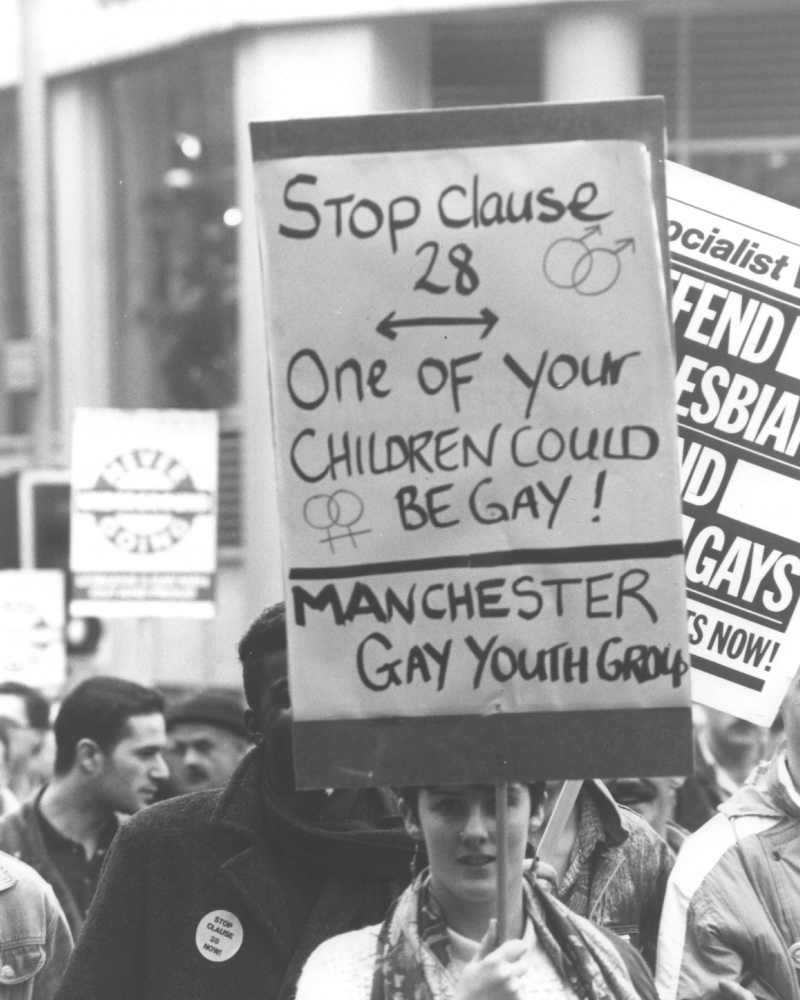
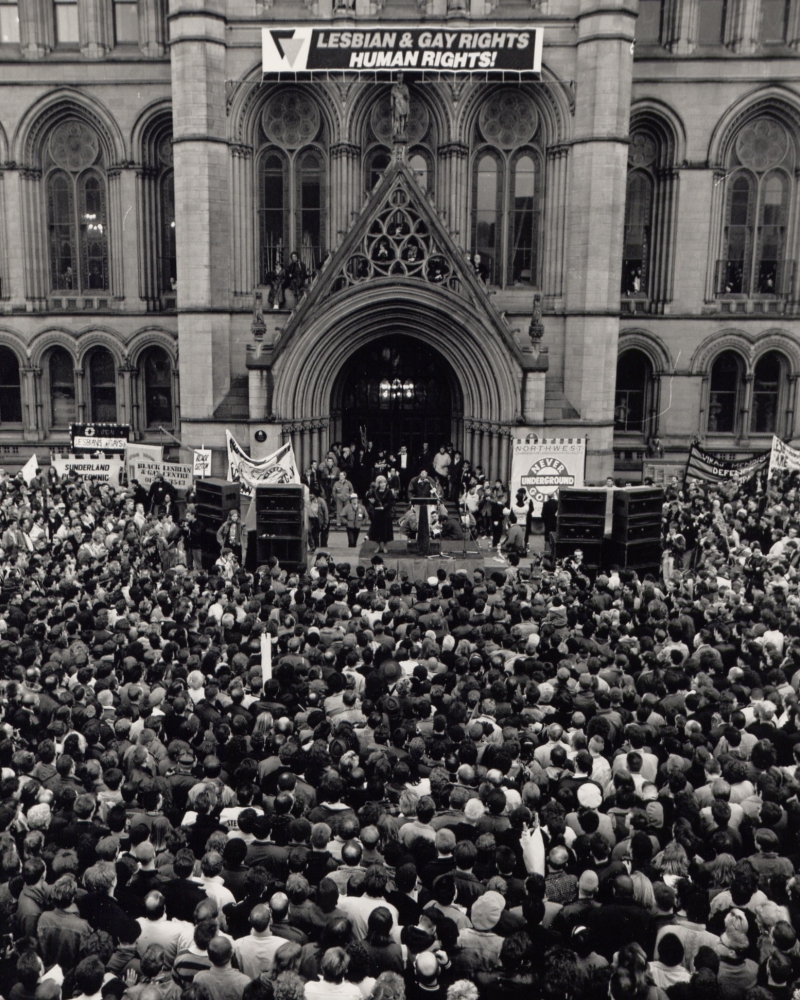
Anti-trans rhetoric in the media and from government officials is at an all time high. Manchester Pride launched our call to action “Nothing about us without us” at the Human Rights Forum 2023, and are pushing for the installation of an independent panel of trans and non-binary people to consult on all national government and Equality and Human Rights Commission (EHRC) guidance, policies and legislation.
They could provide guidance and support for schools and institutions, ensuring that they create safe and inclusive environments for transgender individuals. It could also help in crafting legislation to address pressing issues such as conversion therapy and safeguarding transgender individuals.
One effective way to advocate for the creation of a Transgender Advisory Panel in the UK is to write to your Member of Parliament (MP). Your MP is your representative in the government, and they have the power to voice your concerns and advocate for change.
The UK has come a long way in promoting LGBTQ+ rights, but there is still much work to be done. Establishing a Transgender Advisory Panel is a vital step in ensuring a more inclusive and accepting society. By writing to your MP and expressing your support for this initiative, you can be part of the change and contribute to the betterment of the lives of transgender individuals in the UK. It's time to stand up for inclusivity and equality.
